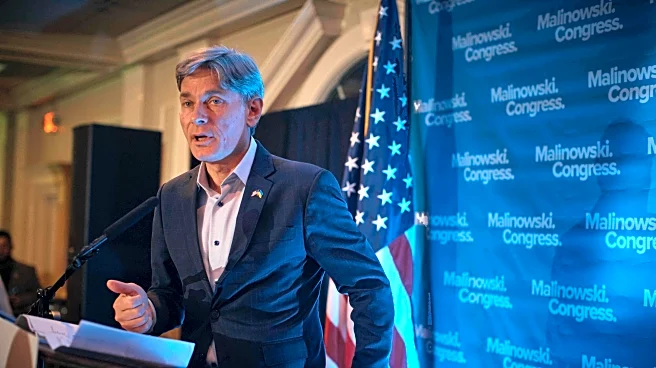What's Happening?
President Trump has expressed strong support for Argentine President Javier Milei's economic policies, which include significant public spending cuts and privatizations. As Argentina faces a potential financial crisis, the U.S. Treasury Secretary Scott Bessent has indicated that the U.S. is prepared to offer financial assistance, including a $20 billion dollar swap line or direct bond purchases. Milei's approach, reminiscent of Thatcherite economics, aims to combat inflation and stimulate growth, but has led to significant social and economic challenges within Argentina.
Why It's Important?
The U.S. support for Milei's economic policies highlights the intersection of economic strategy and political ideology. Trump's backing of Milei reflects a broader trend of using economic tools to support ideological allies, potentially influencing global economic and political alignments. The situation in Argentina serves as a test case for the effectiveness of radical economic reforms in addressing deep-seated financial issues, with implications for other countries facing similar challenges.
What's Next?
The U.S. financial assistance could stabilize Argentina's economy in the short term, but the long-term success of Milei's policies remains uncertain. The upcoming midterm elections in Argentina will be crucial in determining the political viability of Milei's reforms. The international community will closely monitor the situation, assessing the impact of U.S. intervention and the broader implications for global economic governance.
Beyond the Headlines
Milei's economic policies raise questions about the balance between fiscal austerity and social welfare, highlighting the human impact of economic reforms. The situation underscores the ethical considerations of using economic power to influence political outcomes, with potential consequences for international relations and economic justice.











